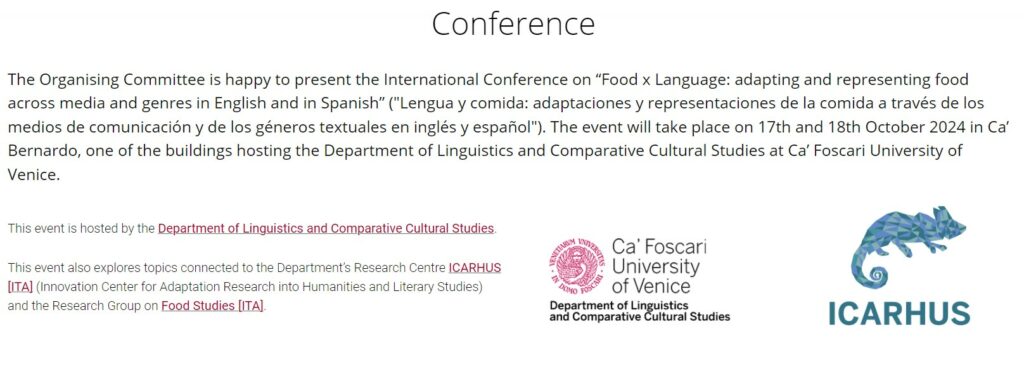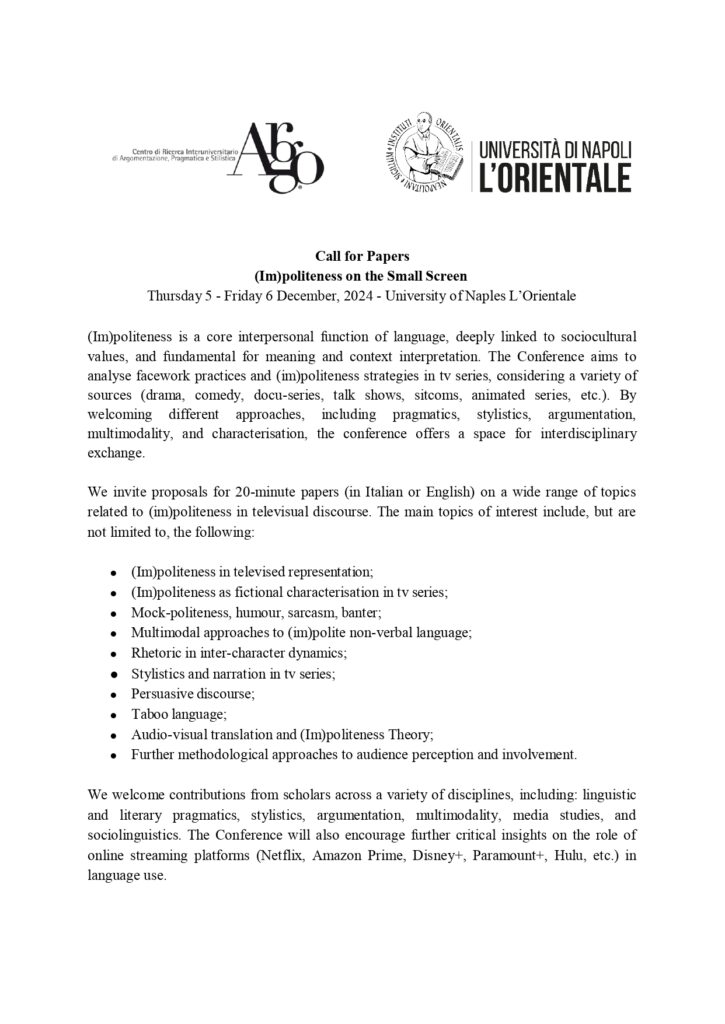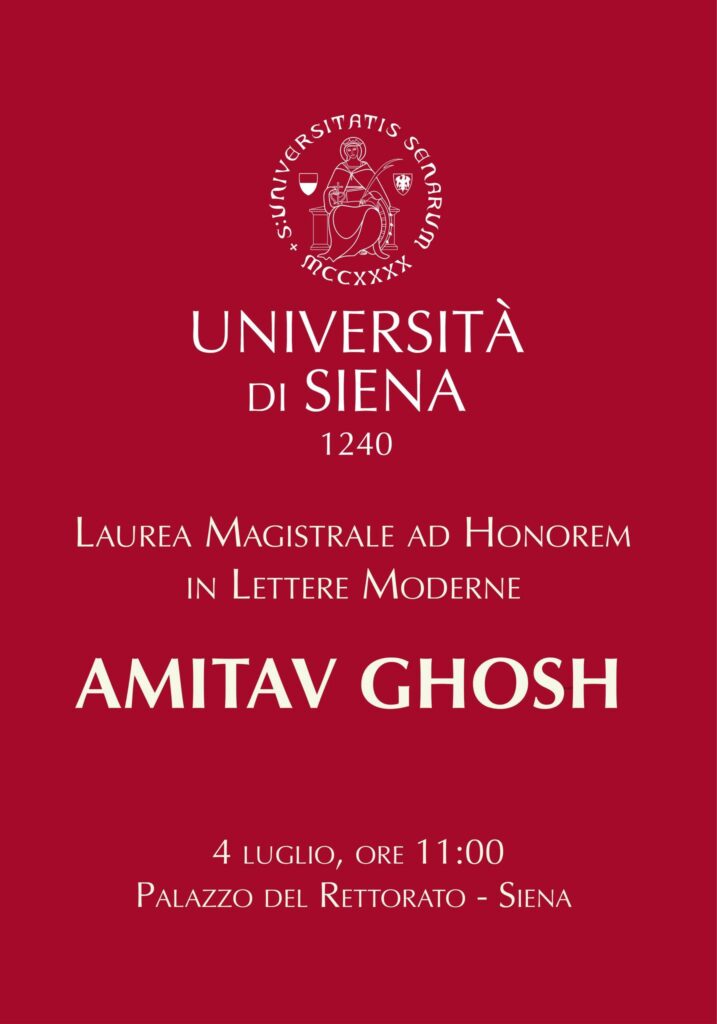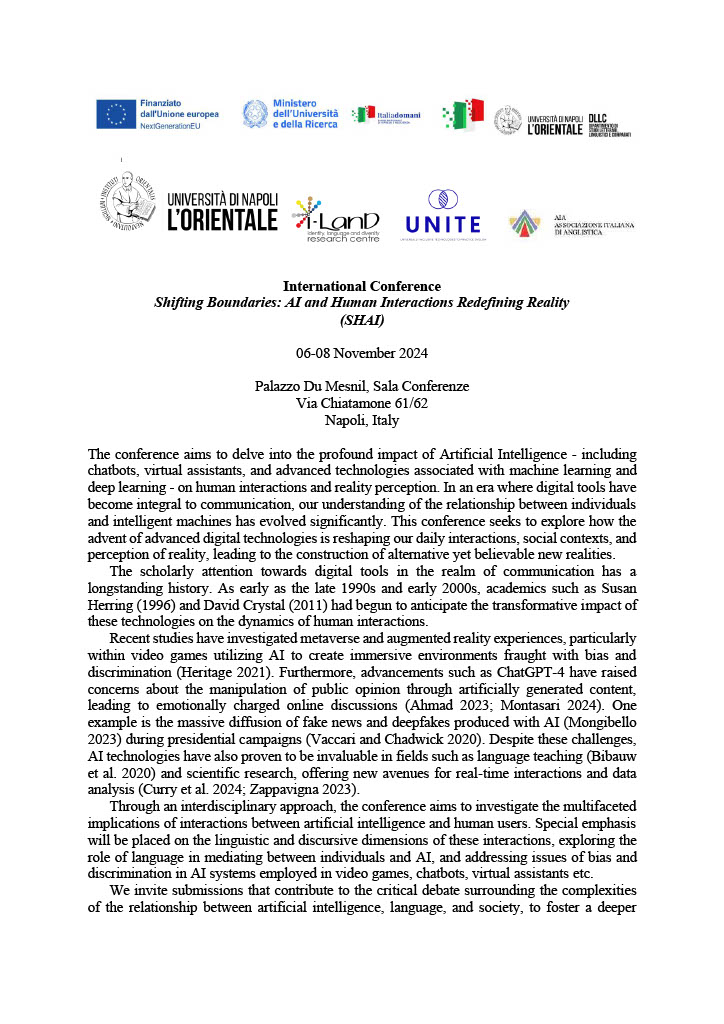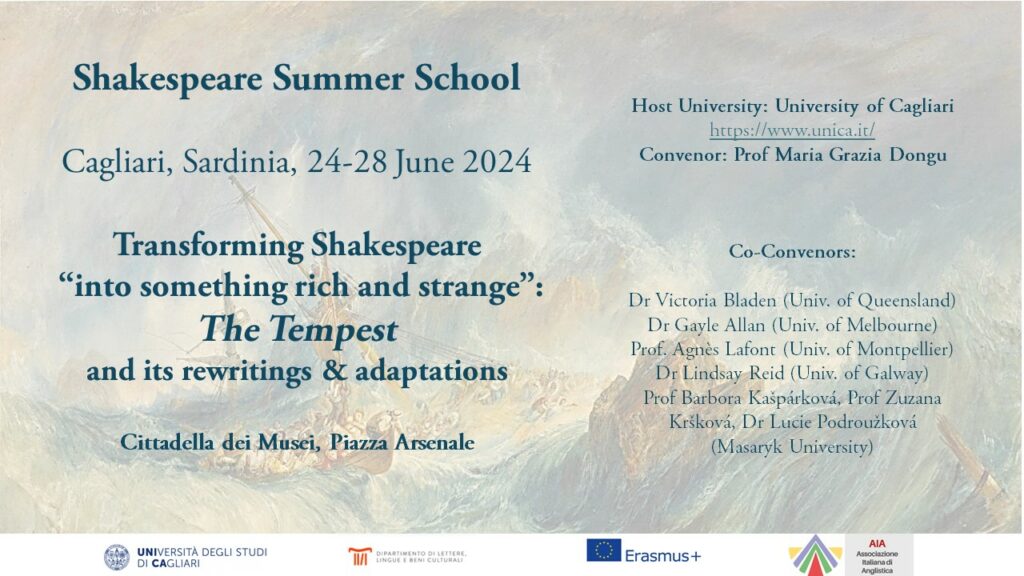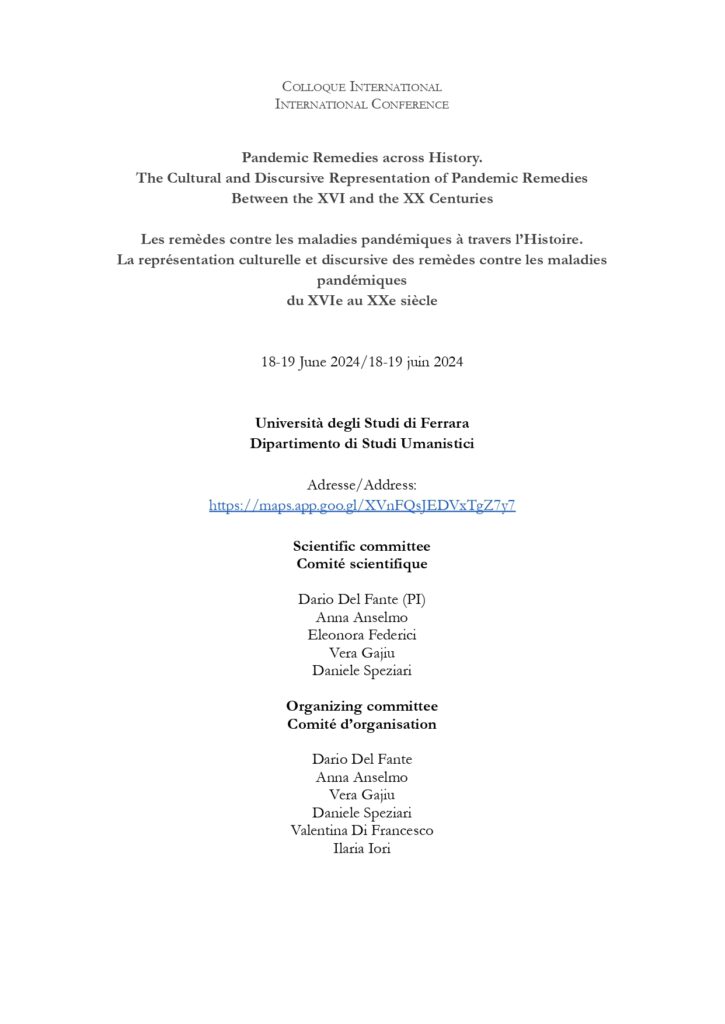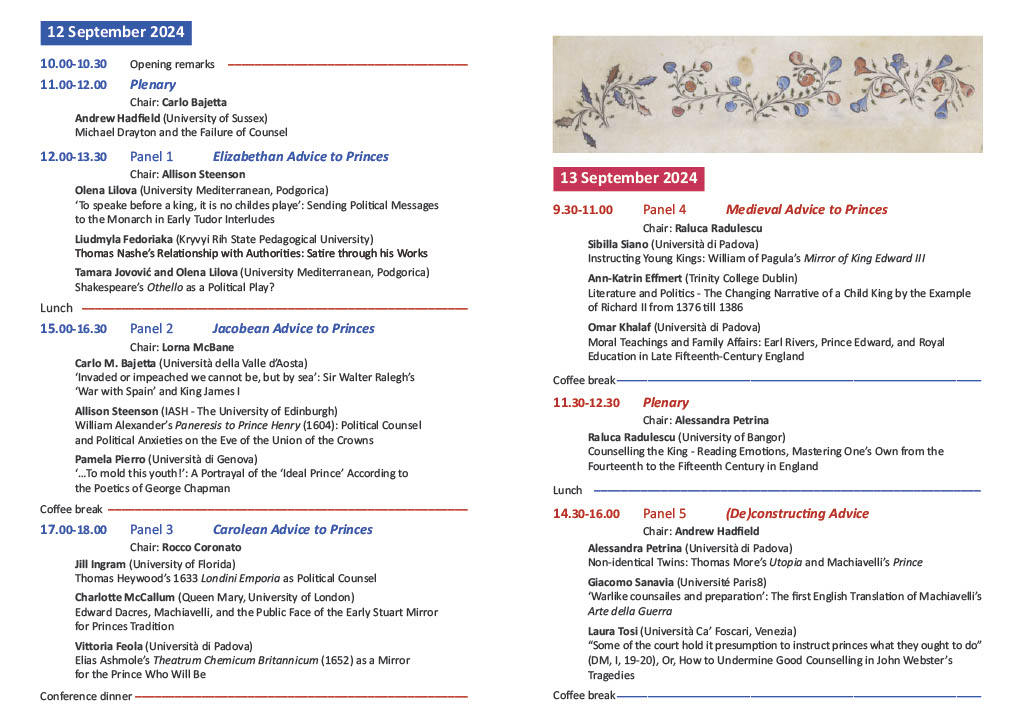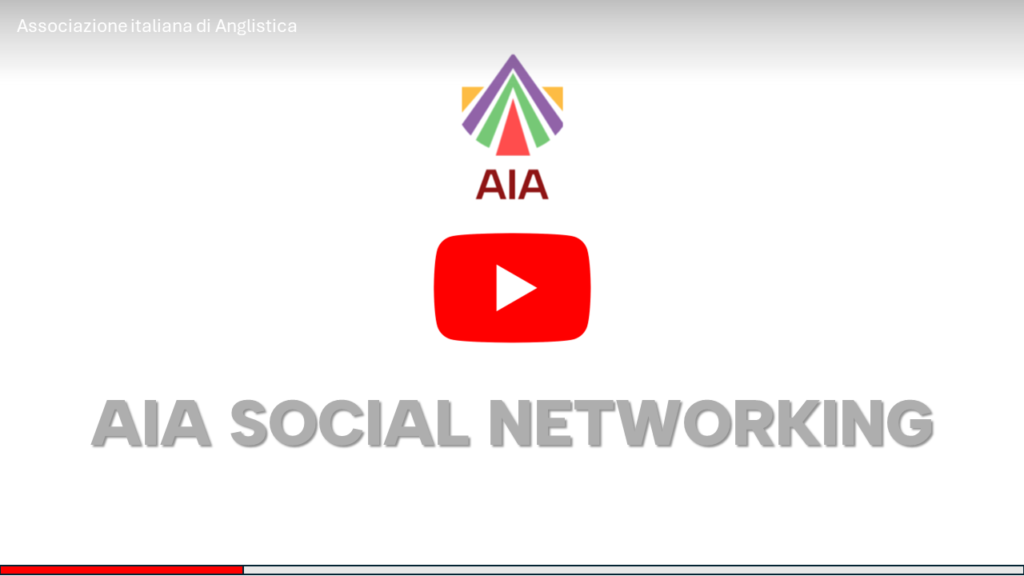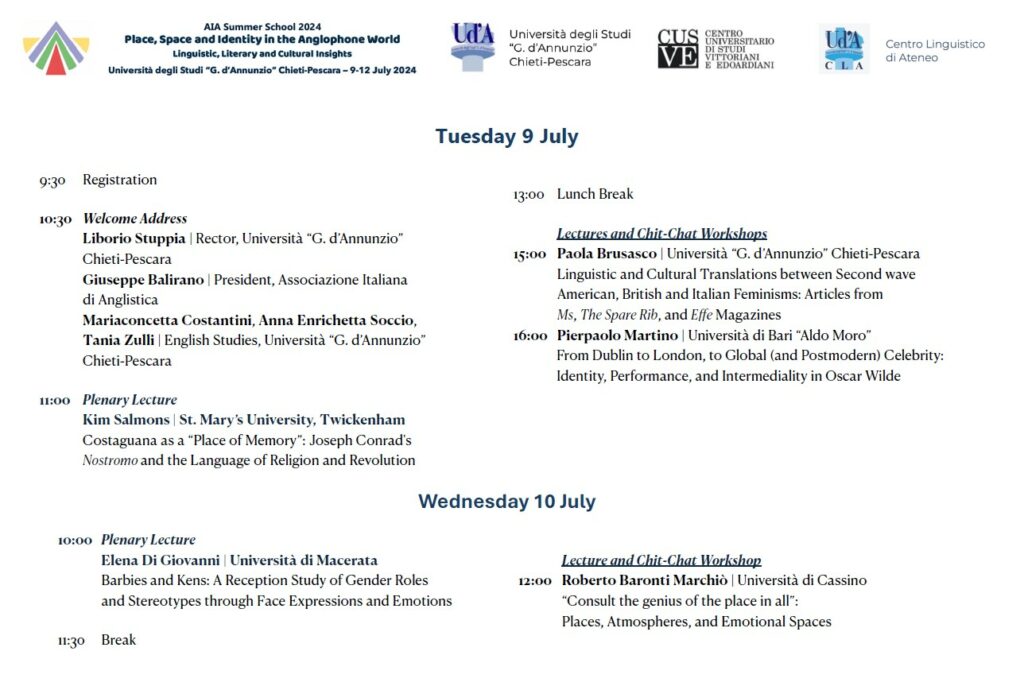International Conference «Food x Language: Adapting and representing food across media and genres in English and in Spanish/Lengua y comida: adaptaciones y representaciones de la comida a través de los medios de comunicación y de los géneros textuales en inglés y español»
International Conference «Food x Language: Adapting and representing food across media and genres in English and in Spanish/Lengua y comida: adaptaciones y representaciones de la comida a través de los medios de comunicación y de los géneros textuales en inglés y español» Venice, 17-18 October 2024 Sala B – Ca’ Bernardo – “Ca’ Foscari” University of Venice The Organising Committee is happy to present the International Conference on “Food x Language: adapting and representing food across media and genres in English and in Spanish” (“Lengua y comida: adaptaciones y representaciones de la comida a través de los medios de comunicación y de los géneros textuales en inglés y español”). The event will take place on 17th and 18th October 2024 in Ca’ Bernardo, one the buildings hosting the Department of Linguistics and Comparative Cultural Studies at Ca’ Foscari University of Venice. Call for Papers *** Deadline Extension *** Food is an important means for human societies not only because it provides nutrition but also for its socializing function. The rituals accompanying its preparation and consumption have always favoured social bonding in any kind of human civilization. However, the participants in communication about food and the ways in which this form of communication happens vary according to several factors, which include gender and age of the participants as well as their role and status in society as well as the reciprocal relations they have with the other members of a specific group. Traditionally, communication about food has happened asynchronously through printed material, however, new technologies and – in recent years – social media have introduced a new element of interaction that has changed the way in which food and foodways are narrated and constantly remediated between individuals and social groups. The two-day conference seeks to bring together scholars who conduct their research on food-related communication. The focus of the conference is communication involving English and Spanish, either alone or in a contrastive perspective. Particularly welcome are contributions that investigate the communicative strategies and dynamics through which cultural elements connected to food-related communication in these two languages and cultures are adapted using several media and genres through which food is narrated and represented. Socio-linguistic, socio-cultural, multimodal, and linguistic approaches are especially welcome.Therefore, we invite contributions addressing the main conference theme as well as relating to the following specific themes: Due to numerous requests, we have extended the deadline, so the new deadline is no longer June 30th but 20th July 2024. Proposals should be sent as email attachments in .doc, .docx, or .rtf format. Abstracts should be in either English or Spanish and should be no longer than 300 words (references included). Prospective participants should also provide a short bio note (no longer than 100 words).Emails should be sent to food.language@unive.it – object of the email: “CONFERENCE FOOD X LANGUAGE/LENGUA Y COMIDA – ABSTRACT PROPOSAL”. Plenary speakers Committees Organising committee Scientific committee English component Spanish component Contacts food.language@unive.it

